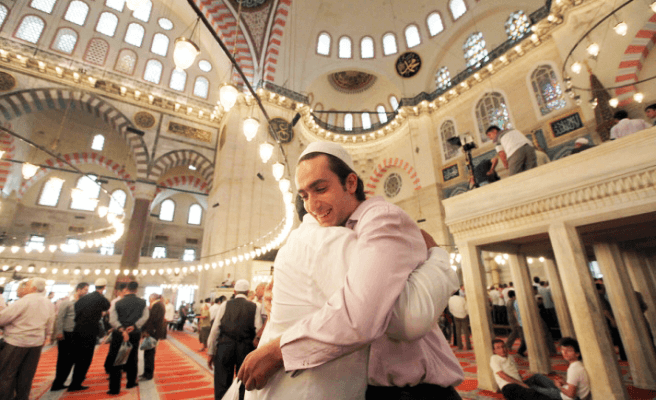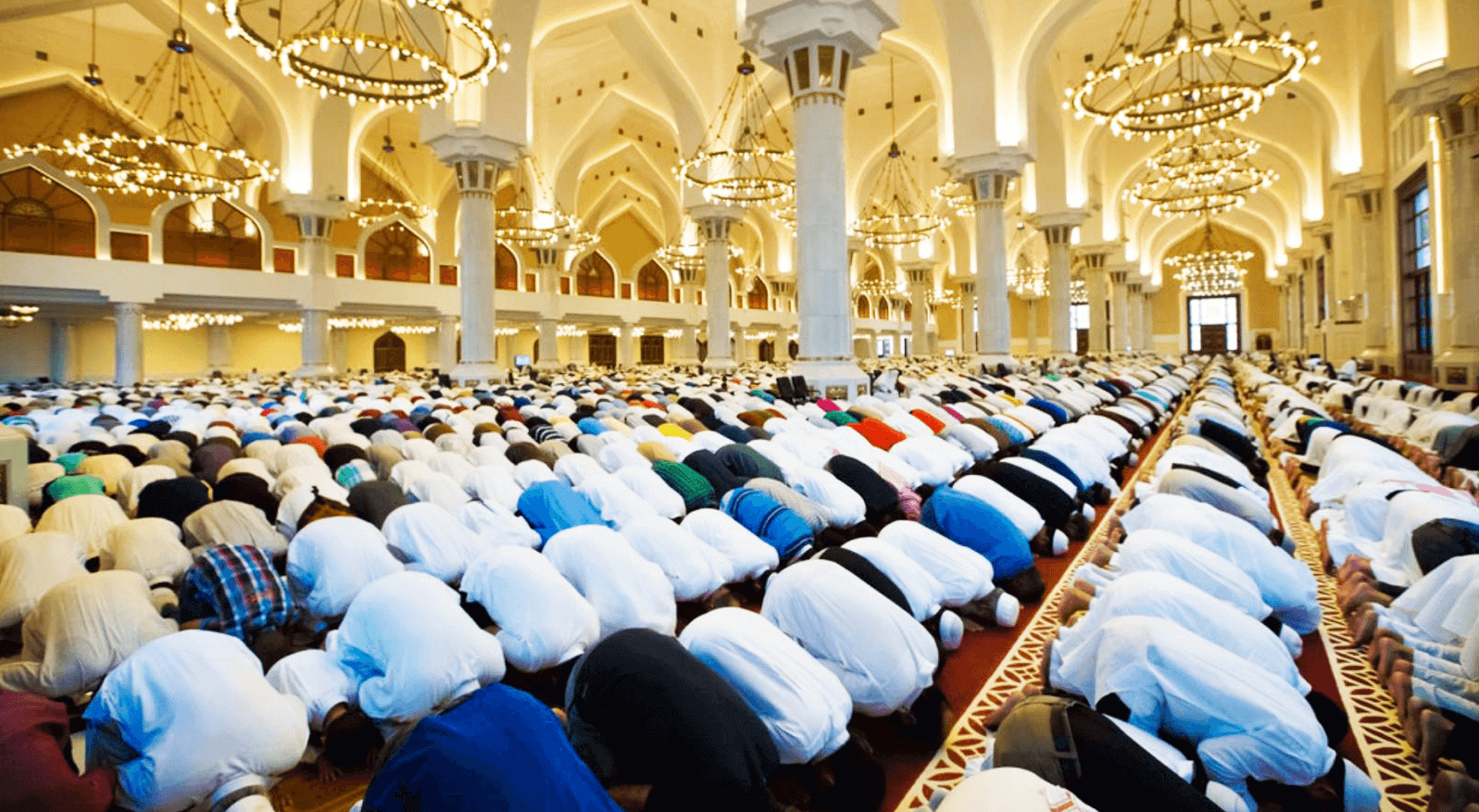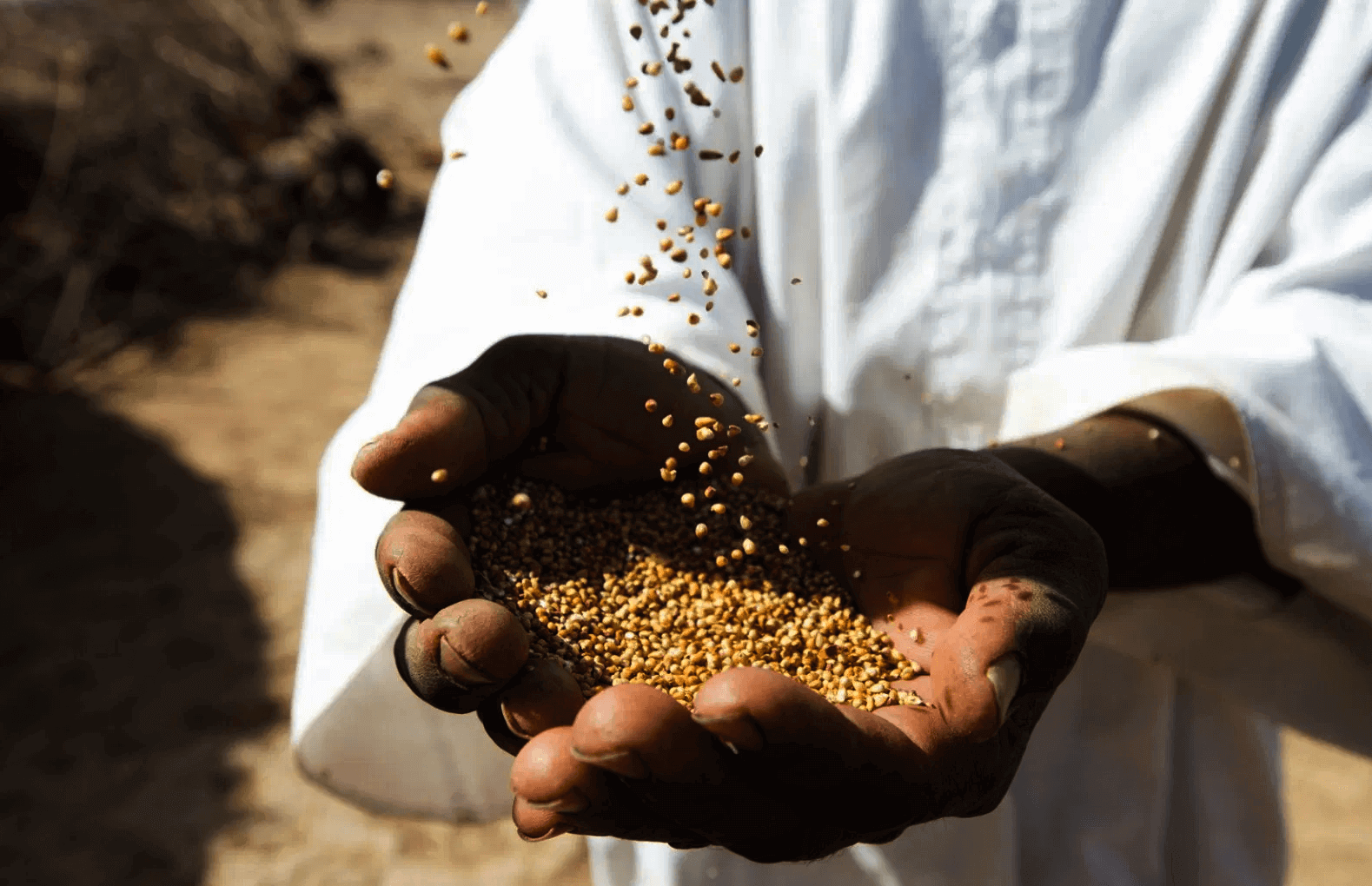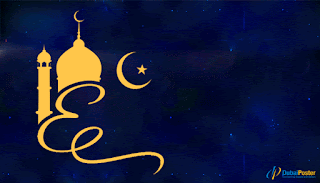EID UL FITR HD IMAGES ,MESSAGE ,GREETING CARDS,INTRODUCTION,2020
HEY GUYS WELCOME TO MY WEBSITE YOU WILL HD IMAGES AND GREETINGS, GIF

Eid ul Fitr, known as ’عيد الفطر’ is Arabic and Asian counties, is a unique festival for all Muslims around the world. Eid al-Fitr marks the end of holy month of Ramadan. Eid al Fitr is Allah's reward for believers who have fasted during the holy month of Ramadan. This is also believers thanking Allah for giving them the chance and the strength to carry out His commands during the blessed month of Ramadan. Traditionally, Eid al Fitr is celebrated for three days almost in all Muslim countries.



IMAGES
Observances: Zakat al-Fitr charity, Eid prayers
Celebrations: Eid prayers, charity, social gatherings, festive meals, gift-giving
Date: Sat, 23 May, 2020 – Sun, 24 May, 2020
Significance: Marks the end of Ramadan fasting
What Does Eid-ul-Fitr Mean?
A direct translation of Eid-ul-Fitr is “the festival of breaking the fast” and commemorates the end of a month-long fast throughout Ramadan for Muslims in the UK and around the world. The festival is a very important time in Islam and allows families, loved ones and communities to come together and celebrate following a month of abstinence and dedication to Allah (SWT).
This is important because it marks the end of Ramadan, the month in which the Holy Qur’an was first revealed to Prophet Mohammad (PBUH). Throughout Ramadan, Muslims around the world undertake a fast between the hours of sunset and sunrise and spend a lot of time in self-reflection while studying the Qur’an and connecting with Allah (SWT) on a spiritual level. After a full month of sacrifice and dedication, Eid-ul-Fitr is a time to come together with family and loved ones to enjoy everyday blessings.
‘The month of Ramadan is that in which was revealed the Qur'an, a guidance for the people and clear proofs of guidance and criterion. So, whoever sights the new moon of the month, let him fast it; and whoever is ill or on a journey - then an equal number of other days. Allah intends for you ease and does not intend for you hardship and wants for you to complete the period and to glorify Allah for that to which He has guided you; and perhaps you will be grateful.’
- Quran 2:185

When is it Eid 2020?
Eid-ul-Fitr 2020 – the date when Eid-ul-Fitr takes place is subject to sighting of the moon, however this must be once the blessed and auspicious month of Ramadan has concluded. Sighting of the moon varies around the world, however, here in the UK, your local mosque will be able to confirm exact dates and times closer to the date.
Eid-ul-Adha takes place on the 10th day of Dhu al-Hijjah, again subject to sighting of the moon.
When is Eid-ul-Fitr 2020?
Many people ask, “what date is Eid?” and the exact date varies year to year, because of the rotational nature of the lunar calendar.
Eid dates in 2020 are anticipated to fall in the evening of Saturday 24th May after Ramadan, however this is dependent on the sighting of the moon, so it's always best to check with your local Mosque for confirmation nearer the time.
While this is the expected Eid date in the UK, the exact date of Eid-ul-Fitr normally varies across the world; there are some communities who choose to retain consistency and celebrate at the same time by declaring Eid 2020 once the new moon has appeared above Mecca.
Why is Eid Celebrated?
Eid-ul-Fitr is celebrated following a successful month of abstaining from both food and drink during daylight hours; this takes a lot of self-control and dedication to bring oneself spiritually closer to Allah (SWT) through prayer and worship in commemoration of the month when the Qur’an was first revealed.
To celebrate a full month of fasting in this way, Eid al Fitr is a joining together of family, friends, and communities to feast and enjoy the food that has been provided by Allah (SWT).
Ways to Celebrate Eid
Eid-ul-Fitr festival is an important way to mark the end of Ramadan, however, before the festivities can begin, there are a number of important rituals that must first take place to give true thanks to Allah (SWT) for all he has done.
Dawn prayers – also known as Fajr – are performed with your family before the ‘ghusl’ cleansing, which purifies the whole body. After the cleansing or ablution, the family prepare for the day, by wearing the finest clothes they own, or new clothes they have bought for the occasion. Families then head over to the local mosque to wish friends, family and the local community “Eid Mubarak” and begin Eid prayers.
Zakat-ul-Fitr, or Fitrana, is an Eid charity donation which must be made before Eid prayers commence, as this is distributed amongst the most needy to ensure they can take part in Eid festivities.
It’s also traditional to exchange gifts, particularly between young children and close family members. This holiday is also known as “The Lesser Eid” or “Sweet Eid” due to the increased number of sweet snacks available and also because this day holds less importance in the Islamic calendar than Eid-ul-Adha.
‘Worship God and join none with Him in worship, and do good to parents, kinsfolk, orphans, the poor, the neighbour who is near of kin, the neighbour who is a stranger, the companion by your side, the wayfarer (you meet) ... Verily, God does not like such as are proud and boastful.’-Quran 4:36
Preparing for Eid-ul-Fitr
Eid is a joyous time and many Muslim communities look forward to the celebrations with eagerness. Are you making plans for Ramadan and Eid-al-Fitr this year? Eid charity donations are commonly made at this time of year, whether as Zakat donations or Zakat-ul-Fitr.
If you’d like to pay or prepare your Zakat donation, please visit our Zakat calculator to work out the amount owed or use our Zakat-ul-Fitr donation page to make your Fitrana contribution to help those in need celebrate Eid-ul-Fitr this year.
‘Those who believe, and do deeds of righteousness, and establish regular prayers and regular charity, will have their reward with their Lord. On them shall be no fear, nor shall they grieve’
Both Eid ul Fitr and Eid Al-Adha have great significance in Islam as the same is evident from the following Hadith:
Narrated that Anas bin Malik (R.A.), who said:
“Allah has given you better than those feasts (festivals of non-believers): the ‘Eid-ul-Adha’ and ‘Eid-ul-Fitr’”
(An-Nasai: 1556)
Remember one thing that Fasting on Eid days i-e Eid ul-Fitr and Eid al-Adha are forbidden as the same is evident from the following Hadith:
Narrated Abu Said Al-Khudri (R.A.) that Prophet (S.A.W.) said:
"No fasting is permissible on the two days of Eid-ul-Fitr and EId-ul-Adha.”
CELEBRATING EID AL FITR

Since it is a religious festival, therefore, Muslims all over the world celebrate this event with much fervor and each country’s celebrations vary as there is an influence of their traditions. Muslims all over the world celebrate the festival of Eid al Fitr by starting the day with the Eid prayer. After offering prayer, Muslim greet each other with the customary Eid greetings by saying Eid Mubarak. Everyone gets new clothes made for the special occasion because every single person wants to look his/her best. The day is spent with friends and family as they get together indulging in eating and handing out gifts.
Eid-ul-Fitr is a period of happiness and enjoyment; and this is also evident from the following Hadith:
It was narrated by Aisha (R.A.) who reported that Prophet (S.A.W.) said to Abu Bakr (R.A.) (On the day of Eid when Abu Bakr (R.A.) saw two girls were singing the stories about the Day of Buath in Madinah):
“….. O Abu Bakr! Every people have their Eid and this is our Eid.”
In another narration, it is said that Allah’s Messenger (S.A.W.) said to Abu Bakr (R.A.):
“Let them be O Abu Bakr, for these are day of Eid.”
EID PRAYER

The scholars differed concerning the ruling on Eid prayers. However, all Muslim should attend prayers of both Eids as most scholars, on the basis of strong evidences, is of opinion that it is Wajib (obligation). One of the purpose behind Eid Prayer is to provide opportunities to a greater number of Muslims to attend larger congregations in an atmosphere of religious piety. Apart from prayer, the Eid sermon (after Eid Prayer) has also been made an integral part of this gathering and the prayer.
- It is important and compulsive for a Muslim to pay ‘Zakat-ul-Fitr’ before offering of Eid Prayer. (Sahih Bukhari: 1511)
- The time for Eid Prayer begins from the time the sun is three meters above the horizon until the sun reaches its meridian. However, it is better to offer the prayer in the early hours after the sunrise. (Abu Dawud: 1135)
- Eid Prayer is performed without any ‘Iqmah’ or ‘Athan’. [Sahih Muslim: 885 (b)]
- Eid prayer consists of two Rak'at (Two Unit Prayer) during which Tabkeer (Allah-u-Akbar) is pronounce seven times. (Abu Dawud: 1149)
- Rest of the Eid prayer is same as other prayer offered daily.
- After completing the prayer, it is Sunnah (some scholars say that it is Wajib) to listen the Sermon (Khutbah) after Eid Prayer. So one should stay for Imam’s sermon to end after completing the Eid Prayer.
After listening the sermon, Muslims congratulate each other with greetings such as ‘Eid Mubarak’, ‘Happy Eid, and عيد مبارك etc. However, the most common Eid Greeting Muslims like to wish their friends and fellow Muslims is ‘Eid Mubarak’.
Sunnah of Eid Prayer
A person should follow the teachings of the Messenger of Allah (S.A.W.) for every aspect of life and same is also apply for Eid prayer. Following are some Sunnah of Prophet (S.A.W.) which every Muslim should follow:
1- Take a bath or perform ablution before going for prayer.
2- Use the tooth-brush (Miswaak).
3- You should wear your best clothes on this day.
4- Apply perfume.
6- Make sure that you have paid Zakat Al-Fitr before offering Eid Prayer.
7- Say following ‘Takbeerat’ while going and returning from Eid Prayer:
اَللهُ أَكْبَرُ ، اَللهُ أَكْبَرُ، اَللهُ أَكْبَرُ، لَا إِلَهَ إِلَّا اللهُ ، وَاللهُ أَكْبَرُ، اَللهُ أَكْبَرُ، وَلِلَّهِ الْحَمْدُ
Allaahu akbar, Allaahu akbar, Allahu akbar laa ilaaha ill-Allaah, wa Allaahu akbar, Allaah akbar, wa Lillaah il-hamd
(Allah is Most Great, Allaah is most Great, Allah is most Great there is no god but Allaah, Allaah is Most great, Allaah is most great, and to Allaah be praise)
(Irwa Al Ghalil: 3 / 125)
8- Listening to Sermon (Khutbah) after offering Eid Prayer. (An-Nasai: 1517)
9- Use different ways while going to mosque and returning after offering Eid Prayer. (Sahih Bukhari: 986)
ZAKAT AL-FTIR (Fitrana)

As narrated by Ibn Umar (R.A.) that:
“Allah's Messenger (S.A.W.) made it incumbent (Wajib) on all the slave or free Muslims, male or female, to pay one Sa' of dates or barley as Zakat-ul-Fitr.”
According to above mentioned Hadith, Zakat Al-Fitr or Sadaqat-ul-Fitr (or fitrah/fitrana) is Wajib upon every Muslim including slave, freeman, male, female, young, new-born and old. Compulsion of Zakat ul-Fitr on a Muslim is same as the Nisab of normal Zakat (Nisab Is the exemption limit for the payment of Zakat).
The amount of Sadaqa Al-Fitr to be given by each person is an amount minimum or equivalent to one Sa' of grain / barley / date. Sa’ is an ancient measure of volume and most common understanding is that one Sa' is equivalent to approx. 2.25-2.5 KGs. However, Muslims scholars all around the world usually announce the amount of Zakat Al-Fitr to be paid during Ramadan.
As in normal Zakat, Zakat Al-Fitr is distributed among poor and needy Muslim. It is preferable to give Sadaqat-ul-Fitr firstly to needy relatives, thereafter to needy neighbors and then to other needy Muslims.
Zakat Al-Fitr should be paid before the Eid Prayer.
CONCLUSION
So enjoy this festival as you can celebrate the entire day with your friends and family members and eating but don’t forget your under-privileged fellow Muslim brother and sisters who don’t have the means to celebrate this blessed festival.














Comments
Post a Comment